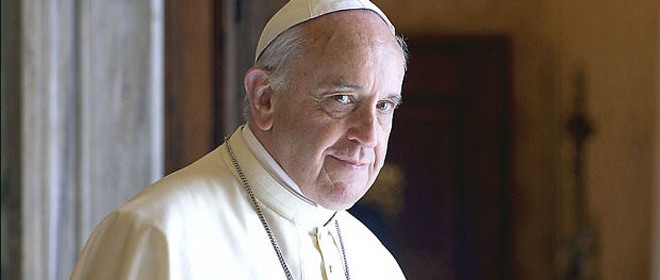Pope Francis’ Tough Stance On Climate Change

A papal letter “is among the highest levels of teaching authority for a pope. These edicts always make news, because they are rare and comprehensive. Singling out climate change is also significant. “It is the first time ever an encyclical letter has been written just on the environment.
Mobilizing believers to embrace climate action could be a very big deal, given the sheer number of people who identify as Catholic in the US. Hispanic Catholics are more likely than any other group to say their congregation has sponsored climate change-related activities.
Would America’s Catholics welcome climate advocacy from the pope? Recent polling by the Public Religion Research Institute and the American Academy of Religion suggests that many would.
The survey asks a series of questions about the environment and religion in an attempt to discern how faith impacts our thinking on science, current events, and policy. The biggest takeaway when it was released in November was that nearly half of Americans say natural disasters are a sign of “the end times,” as described in the Bible. But there are other, more detailed findings about individual religions, too. The researchers break down the results by religious and racial group: White evangelical Protestants, white mainline Protestants, black Protestants, white Catholics, Hispanic Catholics, Jewish Americans, other non-Christians, and “religiously unaffiliated.”
And indeed, most Catholics seem to agree with the pope that climate change poses a serious threat. Here are some of the survey’s key findings:
- Nearly three-quarters of Hispanic Catholics surveyed agree that climate change constitutes a “crisis” or a “major problem.” The same is true for a majority (53 percent) of white Catholic respondents. Of the groups surveyed, Jews are the most concerned about climate change, with nearly 80 percent calling it a “crisis” or a “major problem.” On the other end of the spectrum, a majority (54 percent) of white evangelicals see climate change as only a minor problem, or not a problem at all.
- Nearly a quarter (24 percent) of Catholics surveyed said climate change is the “most pressing” environmental issue we face. That’s more than white mainline Protestants and evangelicals, but less than black Protestants or those who are unaffiliated with a religion.
- The pope’s climate message is likely to resonate with what’s happening already at a grassroots level in churches, as least in Hispanic communities, according to the survey. Seven-in-10 Hispanic Catholics say their clergy discus climate change often (22 percent) or sometimes (48 percent). Hispanic Catholics are also more likely than any other group surveyed to say their congregation has sponsored climate change-related activities, like group discussions or educational programs on the topic.
- Interestingly, there’s wide agreement that acting now on climate change will matter economically. Majorities of all groups surveyed—including 69 percent of Hispanic Catholics and 63 percent of white Catholics—agree that dealing with global warming now will help prevent economic calamities in the future.
Pope Francis’ climate plans follow a call by prominent Catholic bishops to end the use of fossil fuels and secure a global agreement to fight climate change. “As the church, we see and feel an obligation for us to protect creation and to challenge the misuse of nature,” declared one of the statement’s authors.
It’s also not the first time Pope Francis has advocated tough climate action. Ahead of the Lima meeting, the pontiff wrote a letter to Manuel Pulgar-Vidal, Peru’s minister of the environment, to urge action. “The time to find global solutions is running out,” wrote the Pope. “We can find adequate solutions only if we act together and unanimously.”
Climate change, Pope Francis added, will “affect all of humanity, especially the poorest and future generations. What’s more, it represents a serious ethical and moral responsibility.”

 Print
Print